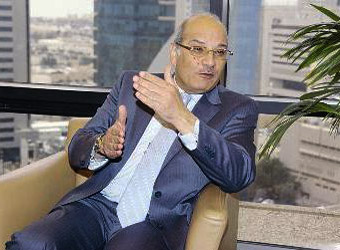
This is a little strange.
Egyptian president Mohammed Morsi has appointed little-known Hisham Qandil, the current transitional minister of water resources and irrigation, as Egypt’s new prime minister.
This upends several media reports over the past few weeks that Morsi was narrowing his search to more well-known economist types, such as former Central Bank of Egypt president Mahmoud Abul-Eyoun. The announcement came nearly a month after Morsi was sworn in and after multiple delays.
Since inauguration, Morsi has struggled with the Supreme Council of the Armed Forces over everything from the appointment of the Constituent Assembly (which will write Egypt’s new constitution) to the disbanding of Egypt’s Islamist-dominated parliament. One of the key problems in assessing Qandil’s appointment is that no one knows what Morsi’s powers will be as Egypt’s president (especially vis-a-vis SCAF), let alone what to expect from his prime minister.
We also know what Egypt’s investors think of the appointment: not much. Stock prices in the benchmark EGX 30 fell 1% today.
Qandil, relatively young at age 50, is not a particular specialist in economics and, prior to his appointment as water minister in July 2011, was a senior bureaucrat in the water ministry. At a press conference later, he announced that he intends to appoint a technocratic cabinet shortly, and that he would focus on Morsi’s five top priorities — his ‘100 day plan’ to focus on security, traffic, bread, public cleanliness and fuel.
The announcement does not tell us with any further clarity what official role, if any, the Muslim Brotherhood’s Khairat al-Shater will play in the new government — al-Shater, a businessman and Islamic activist, was the Brotherhood’s original candidate for president prior to his disqualification earlier this spring, and is believed to wield signficant influence behind the scenes with the new Morsi administration.
I’ll note, however, that “water” is not among those five priorities, but water management and supply is a critical issue for a desert country whose main river, the Nile, is absolutely critical to its economy, transportation, agriculture, health and sustainability.
Like Morsi, he appears to have studied in the United States — he apparently has a doctorate in irrigation from the University of North Carolina in 1993. He has also served as a senior manager for the African Development Bank.
It’s also strange that the announcement came initially via the Facebook page of the Muslim Brotherhood’s Freedom and Justice Party — Morsi has gone to lengths to sever official ties with the group since his election last month as Egypt’s new president, and he stressed in his press conference that Qandil has belonged to no official political party, but Egypt Independent has already noted one detail that could concern secularists:
The former irrigation minister’s beard has caused speculation of Islamist tendencies. He denied any affiliation with Islamist groups when he told Al Jazeera his beard was grown in keeping with religious obligations.
Photograph by Al-Masry Al-Youm of the Egypt Indpendent.
![]()





